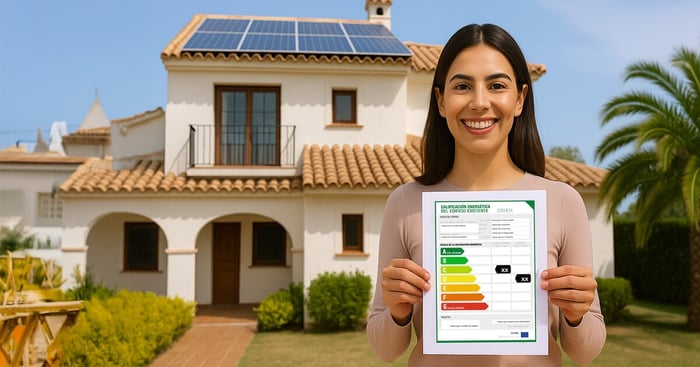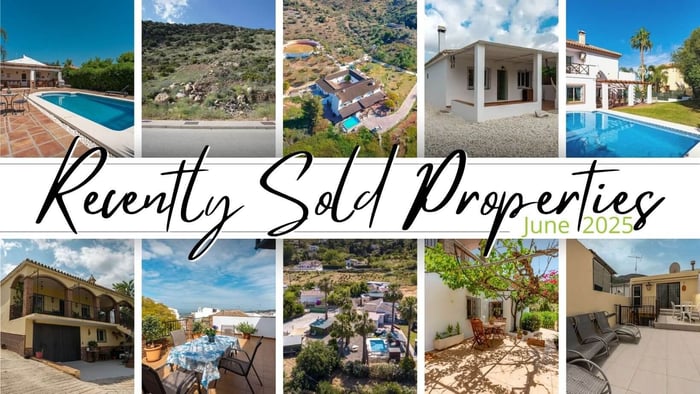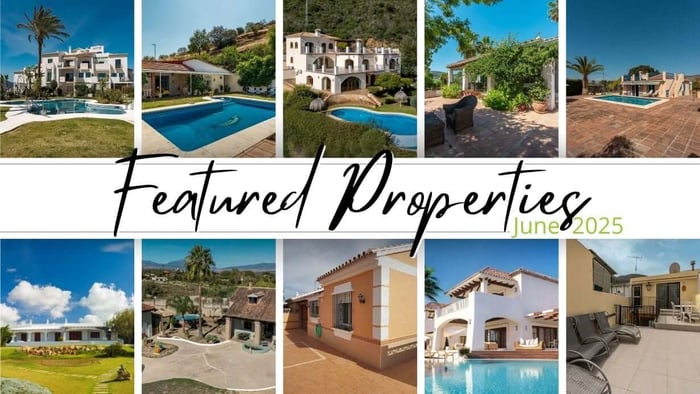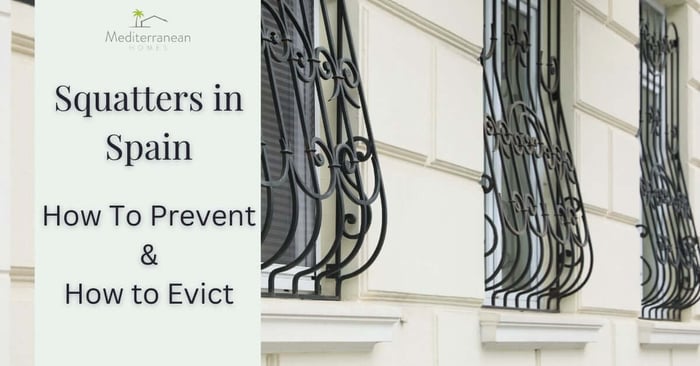Table of Contents
- New Energy Efficiency Ratings Rules in Spain: What Home Owners On The Costa Del Sol Must Do Before 2030
- What do the ratings mean?
- What are the fines for non-compliance with the Energy Rating Regulations in Spain?
- Financial implications of Spain's New Energy Regulation
- Key Changes to Energy Certificate Regulations in Spain
- Our Recommended Energy Ratings Assessor on the Costa del Sol
- Conclusion
- FAQs
New Energy Efficiency Ratings Rules in Spain: What Home Owners On The Costa Del Sol Must Do Before 2030
An Energy Performance Certificate (EPC) is a document that shows how energy efficient a property is. It includes a rating from A (most efficient) to G (least efficient) and provides recommendations for improving the property’s energy efficiency. EPCs are often required when selling or renting a property. CEE's are valid for 10 years from the date the CEE is issued.
In Spanish, an EPC is called a Certificado de Eficiencia Energética (CEE).
From the 1st of January 2030, all residential properties will need to meet a minimum energy efficiency of "E" before they can be sold or rented for long-term or short-term.
The minimum rating will be raised to "D" in 2033.
These changes stem from EU directives aimed at reducing carbon emissions from buildings. By 2030, every property must achieve a minimum energy rating of "E". If your home currently falls below these ratings, you'll need to make necessary upgrades BEFORE it can be listed for sale or rent.
What do the ratings mean?
Here's a useful table outlining the differences between each of the ratings.
| Rating | Description | Typical Characteristics |
|---|---|---|
| A | Excellent | Very low energy usage, highly efficient systems, superior insulation, renewable energy sources (solar panels, heat pumps), very low running costs. |
| B | Very good | Efficient systems, good insulation, modern construction, low energy bills, above average standards. |
| C | Good | Relatively efficient, fairly modern, adequate insulation, reasonable energy costs. |
| D | Average | Meets minimum modern standards, moderate insulation, average energy costs, some potential for improvement. |
| E | Below average | Older heating systems, limited insulation, higher energy bills, noticeable energy loss. |
| F | Poor | Inefficient systems, poor insulation, expensive to heat or cool, significant energy loss, needs improvements. |
| G | Very poor | Extremely inefficient, very high energy bills, inadequate insulation, outdated systems, major work needed to improve efficiency. |
What are the fines for non-compliance with the Energy Rating Regulations in Spain?
Here's a table outlining the fines possible for not abiding by the Spanish regulations.
| Infraction | Severity | Fine (€) |
|---|---|---|
| Advertising a property for sale or rent without including the energy rating | Minor | 300 – 600 € |
| Selling or renting a property without providing a valid and registered Energy Performance Certificate | Serious | 601 – 1,000 € |
| Using a false or expired certificate, falsifying data, or impersonating an authorised technician | Very serious | 1,001 – 6,000 € |
Financial implications of Spain's New Energy Regulation
The financial implications of this new rule are significant, especially for homeowners. Current projections suggest that around 85% of homes in Spain will require upgrades to meet the new energy efficiency standards. With the average age of homes in the country exceeding 40 years, many may have inadequate insulation, outdated windows, and inefficient heating systems.
If you own an older property, you may need to invest in improvements such as enhanced insulation, double-glazed windows, modern heating solutions, or even the installation of solar panels. While these upgrades may come with considerable costs, they can ultimately enhance your property's value, attract more prospective buyers and tenants, and reduce utility bills in the long run. It's essential to consider that these changes represent a significant financial commitment for many homeowners.
Financial Assistance for Property Upgrades is Available
Financial aid programs, including the EU's Next Generation scheme, through the Recovery and Resilience Facility (RRF), are available to assist with energy-related home upgrades. As the deadline approaches, more subsidies and grants are expected to become accessible.
- Investing in your property's energy efficiency doesn't have to break the bank, thanks to various financial assistance options provided by the Spanish government and EU initiatives:
- Upgrade costs can range from €3,000 to €15,000, depending on the size of your home and the specific upgrades required.
- Financial assistance through the Next Generation EU funds can cover between 30% and 80% of renovation costs.
- Green mortgages are available with better interest rates for energy-efficient properties.
- Tax deductions of up to 60% are provided for particular energy-saving renovations under the government's Plan de Recuperación.
If you own a property, particularly an older one, now is the time to evaluate your current energy rating. Taking action early will help you make the necessary adjustments and avoid being caught in a challenging position as the deadline approaches. By the end of this decade, energy efficiency will not only influence your utility costs but also play a critical role in whether you can sell or rent your home.
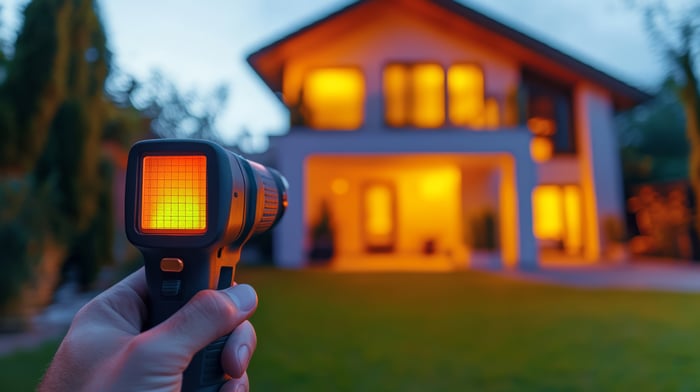
What You Can Do To Enhance Your Property's Energy Rating
To meet the required energy efficiency standards, consider implementing the following upgrades:
- Insulation: Improve wall, roof, and floor insulation to minimise energy loss.
- Windows & Doors: Upgrade to double or triple-glazing for enhanced insulation.
- Efficient Heating & Cooling: Invest in modern energy-efficient heating systems, such as heat pumps.
- Renewable Energy Solutions: Consider installing solar panels or a thermal water system to significantly boost your energy rating.
- Professional Assessment: Engage a certified technician to conduct an energy audit and outline an improvement plan.
Future-Proof Your Investment
Whether you're looking to sell your home, prepare it for rental, or undertake renovations, achieving a good energy certificate rating is crucial to protecting your property's value and enhancing its marketability.

Why The Energy Certificate Matters for Property Owners on the Costa del Sol
As a property owner in Spain, it's vital to acknowledge the consequences of these changes:
- Legal Compliance: Properties failing to meet the required energy efficiency standards will not be legally sellable or rentable.
- Impact on Property Values: Homes with low energy ratings may experience a decrease in value, whereas those with improved ratings will attract eco-conscious buyers and tenants who seek energy efficiency.
- Financial Consequences of Delays: Postponing necessary upgrades might lead to inflated renovation costs in the future, especially as demand for contractors increases closer to the 2030 deadline.
Key Changes to Energy Certificate Regulations in Spain
To summarise the upcoming changes:
- Mandatory Energy Performance Certificates: All properties are currently required to have a valid energy efficiency certificate before they can be listed for sale or rent. It currently does not matter what that rating is for you to be able to sell or rent the property.
- Minimum 'E' Rating: Starting 01/01/2030, all homes must possess a minimum energy rating of 'E' to be listed for sale or rent.
- The minimum required rating will increase to 'D' by 2033.
- Properties rated 'F' or 'G' will need significant upgrades before marketing for sale.
- The overarching goal is zero-emission buildings across Europe by 2050.
Our Recommended Energy Ratings Assessor on the Costa del Sol
Here are the details of our personally recommended energy ratings assessor who covers the inland areas of the Costa del Sol including all towns in the Guadalhorce Valley such as Coin, Mijas, Alhaurin de la Torre, Tolox, etc.
Alvaro Guerrero | Tel: +34 621 34 98 78 | email: [email protected]
Conclusion
The 2030 Energy Certificate regulation marks a pivotal moment for the Spanish real estate market. It's not just about compliance; it's about adding value and sustainability to your property.
Don't wait until the deadline approaches—start planning now to ensure your home is future-ready. The team at Mediterranean Homes is here to assist you with every step—from energy audits and renovation support to strategies for successful resale.
For additional insights on the new energy efficiency regulations and available funding options, we encourage you to visit the official website of the Instituto para la Diversificación y Ahorro de la Energía (IDAE) or contact us directly for personalised assistance.
At Mediterranean Homes in Coin, Kelly Summerell and her colleagues are here to connect you with energy consultants and guide you through the application process for these funding programs, ensuring your investments yield maximum benefits. If you need further assistance or advice on navigating these changes, don't hesitate to reach out to our knowledgeable team.
FAQs
What is a CEE (Certificado de Eficiencia Energética)?
The CEE is an Energy Performance Certificate that shows how energy-efficient a property is, using a scale from A (most efficient) to G (least efficient). It also includes recommendations on how to improve the property’s energy efficiency.
When do I need a CEE?
You need a valid CEE if you are selling, renting, or advertising a property for sale or rental in Spain. It must be presented to the buyer or tenant before the transaction is finalised.
How long is the CEE valid for?
The certificate is valid for 10 years. However, if significant renovation work is carried out that affects the energy performance, an updated certificate may be required.
Who is qualified to issue a CEE in Spain?
Only authorised and certified energy assessors can inspect the property and issue the CEE. They must be registered and accredited under the rules of each autonomous region.
What are the current fines for not having a CEE?
Fines range from €300 to €6,000 depending on the severity: minor infractions for missing information in ads, serious infractions for failing to provide a valid certificate, and very serious for using false or fraudulent certificates.
Are there any properties that are exempt from needing a CEE?
Yes. Some properties may be exempt, such as buildings under 50 m² not intended for residence, properties to be demolished or fully renovated, and some historical or protected buildings where improvements are not permitted.
What are the new regulations planned for 2030?
Under Spain's National Energy and Climate Plan (PNIEC) and EU directives, from 2030 onwards, properties intended for sale or rental must achieve a minimum energy rating of E. Properties rated F or G will no longer be allowed to enter the market unless they are upgraded.
What should I do if my property has an F or G rating?
It is advisable to start planning energy efficiency improvements such as upgrading insulation, replacing old windows, installing efficient heating/cooling systems, or fitting renewable energy systems like solar panels.
Will I need to upgrade my property before 2030?
If you plan to sell or rent your property after 2030, yes, you will need to ensure it meets at least an E rating. If you do not plan to sell or rent, it is not mandatory, but upgrading may still reduce your running costs.
Who is responsible for ensuring the property meets the minimum rating?
The property owner is responsible. Before selling or renting, you must provide proof that your property complies with the minimum energy efficiency standards.

